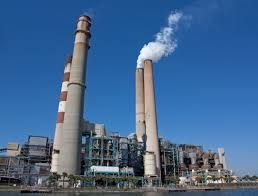UK Energy Secretary Amber Rudd will to announce later today that the country’s remaining coal-fired power plants will be shut down within a decade.
Currently coal provides 28% of Britain’s electricity.
Ms Rudd will say: “It cannot be satisfactory for an advanced economy like the UK to be relying on polluting, carbon intensive 50-year-old coal-fired power stations,”
Instead, the UK will rely on gas, which she will say is one of the most cost-effective ways to cut emissions of greenhouse gases in the energy sector.
“One of the greatest and most cost-effective contributions we can make to emission reductions in electricity is by replacing coal-fired power stations with gas,” she will say.
“Gas is central to our energy secure future. In the next 10 years, it’s imperative that we get new gas-fired power stations built.”
She will also back more new nuclear plants, describing the technology as “central to our energy secure future”.
The move is part of the government’s target to reduce carbon dioxide emissions by 2050 to 80 percent below levels in 1990.
Environmental groups welcomed the decision, but have criticised the cut on so many subsidies for renewables and energy efficiency schemes.
Greenpeace’s head of energy Daisy Sands said:
“Launching a new dash for gas and new nuclear is not the solution as it will only lock in more dirty power than we actually need for a low-carbon transition,”
GMB national secretary for energy Brian Strutton commented: “Government needs to get on with addressing the urgent need for nuclear power stations and gas-fired stations to supply reliable power.
“The investment will only happen when the framework is right, which it is not now.”
David Nussbaum, chief executive of the charity WWF, was quoted by The Guardian as saying:
“As the government will highlight, decarbonising our economy will involve a mix of technologies.
But the way to develop a climate resilient economy and to be fair to billpayers is to pursue renewables ambitiously and to do so now.
Other countries are taking advantage of the fact that around half the global energy infrastructure being built today is renewable. And as renewables prices tumble the global market booms. Is Britain happy to be left behind?”

